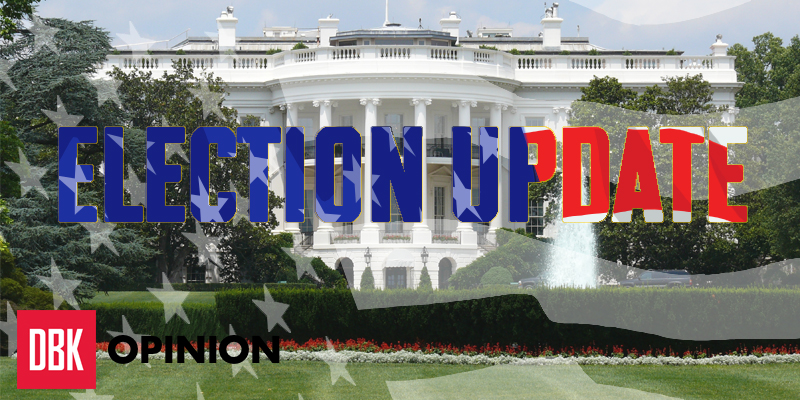The Republican presidential primary has been nothing short of chaotic — and it’s still nine months until the general election. From businessman and reality television star Donald Trump’s controversial statements to chaotic debate stages, the Republican primary has been a drama-filled ratings bonanza for the television networks. Yet the drama appears to be just beginning. Not only is the populist Trump the undisputed primary front-runner, but the primary itself also might end in a brokered convention — meaning no candidate gets the majority of delegates’ votes — for the first time since 1948.
With five candidates remaining — and appearing unlikely to withdraw from the race — there is a significant chance that no candidate will gain a majority of primary delegates. If that’s the case, the Republican National Convention in July becomes much more significant as a brokered convention. In such a convention, Republican delegates and candidates would have to negotiate with one another to determine the presidential candidate.
In recent days, candidates have acknowledged the possibility of such a convention. Ohio Gov. John Kasich actually welcomed the possibility, in part because of the convention’s location in his home state. Florida Sen. Marco Rubio’s campaign is already reportedly preparing for such an outcome. Texas Sen. Ted Cruz acknowledged such a possibility last summer.
In most elections, the idea of choosing a candidate at a party convention would be anathema for Republicans. The GOP mostly eschews superdelegates, and the Republican National Committee has repeatedly insisted that voters would be choosing the nominee, even if it’s Trump. But secretly, party leaders are most likely rooting for such an outcome if Trump stays the front-runner. And so are many Republican primary voters, including myself.
Even if he has the current plurality of support, Trump is far from well-liked by conservatives and others in the GOP coalition. Indeed, party leadership has been plotting for ways to slow down Trump, according to a detailed New York Times report. One such way would be to force a brokered convention by helping to deny Trump a majority of delegates through key “winner-take-all” states.
So how might this convention work?
All the delegates would gather for a vote at the convention. On the first ballot, delegates would be bound to vote for whom they were pledged. But since no candidate would have a majority of delegates, no candidate would be selected. This is where things get interesting.
Candidates — and their loyal delegates — would have to try build a majority coalition by taking other candidates’ delegates. Adding to the confusion, some pledged delegates might have loyalties to other candidates but were bound by state primary rules, meaning candidates wouldn’t have complete control over all their delegates.
Even if Trump has a plurality of delegates, he would still have a difficult time forming a majority coalition. Rubio, Cruz and Kasich would sooner coalesce around one another than Trump, and Ben Carson is unlikely to have enough delegates to push Trump over the majority threshold.
The Republicans finally choose a nominee. What happens next?
It will almost certainly be an uphill battle to the White House for the lucky winner. First, the nominee must figure out a way to unite the party. If it is Trump, he must find ways to guarantee to moderates and conservatives that he won’t wreck the party so they actually show up to vote in November. If it’s a more establishment candidate, they will need to reconcile with Trump’s fervent base of support — and dissuade him from a third-party run.
At the same time, the Democratic nominee will be sure to capitalize on the fact that the Republicans’ candidate was chosen by party leaders and not the primary voters. This attack — coupled with a divided party — might prove catastrophic in a general election.
If the Republicans want to win the White House this year, they must do their best to avoid a brokered convention. Allowing party voters to choose the winner will avoid the bad press and bitter convention battle now looming. However, if Trump continues to win the majority of delegates, then Republicans will have equally serious electability concerns. The ideal situation for party leaders — a non-Trump candidate with a majority of delegates — is more and more unlikely to come to pass.
Matt Dragonette, opinion editor, is a senior accounting and government and politics major. He can be reached at mdragonettedbk@gmail.com.



